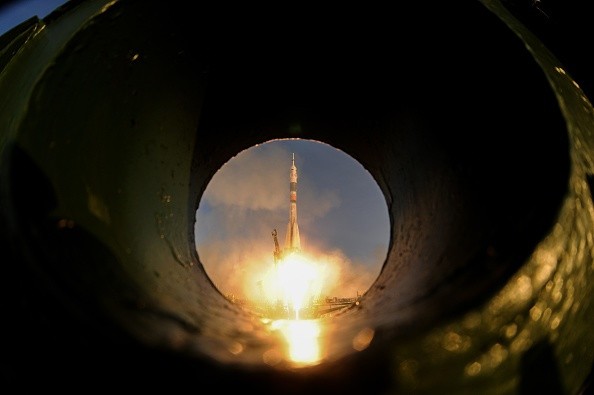After a long time of Russia being cut off from the world, the country is back in action for its cosmic ventures, particularly with its commercial spaceflights catering to other countries. The Soyuz rocket recently launched from Eastern Russia to bring payloads to orbit, containing three small foreign satellites from the United Arab Emirates, Belarus, and Malaysia.
This mission may mark the return of Russia to the commercial spaceflight industry and may cater to more countries who do not mind having ties with a disconnected one.
Russia Launched the Soyuz Rocket as Part of Commercial Spaceflight

The Soyuz-2 rocket launched to orbit last Tuesday morning, as part of its commercial spaceflight mission where it caters to partner companies or countries to bring payloads to orbit. According to Salem AlMarri, Director General of the Mohammed Bin Rashid Space Center from the UAE, the Soyuz-2 contained a 44-pound satellite called PHI-Demo, meant for IoT communication.
As per Ars Technica, this is only one of the three payloads that went on board the Soyuz rocket on early Tuesday, centering on others who shared the rocket to bring their technology to space.
It is known that Russia still has sanctions for its actions, and its space industry was affected as it did not have access to parts for its development, much less its use. Still, Russia managed to develop a working one and deliver these three satellites to orbit.
Back to Normal? Clients are From UAE, Belarus, and Malaysia
The three clients include the United Arab Emirates' MBRSC; Belarus, a known Russian ally; and Malaysia, with a company called Angkasa-X, a company that aims to bring broadband internet to the Asia-Pacific.
The MBRSC brought OQ Technology (from Luxembourg) and SteamJet Space Systems (from the UK) tech aboard the PHI-Demo satellite. On the other hand, a Malaysian CubeSat came from Angkasa-X.
Russia was chosen despite the many controversies, and not from renowned companies like SpaceX which is known for its ride-share offers.
Russia Was Cut Off From the World After Ukraine Conflict
Russia was cut off from the world, and this was largely based on its actions against Ukraine, as back in 2022, there was a massive invasion that the Eurasian country launched against its neighbor.
Amidst the US sanctions, Russia has threatened its partners in the International Space Station, going as far as to say that there would be massive consequences, including an uncontrolled orbit to happen.
The retaliation did not stop there, as Russia also claimed that it would stop selling spacecraft parts and rocket engines to the US, one of the biggest exporters of space tech.
Different companies from various industries also stopped their partnerships with Russia, both the state and private ones after the world turned its back on them.
More than a year later, it seems like partnerships are blooming again for Russia, particularly for its space industry and Roscosmos. While the US and other nations still denounce Russia's continued action against Ukraine and sanctions are still up, three countries have restarted their ties and commissioned the Soyuz rocket for their payloads, and this may not be the last of its commercial missions.
Related Article : Vladimir Putin Threatens Use of Depleted Uranium Weapons in Response to US-Ukraine Deal

ⓒ 2026 TECHTIMES.com All rights reserved. Do not reproduce without permission.




